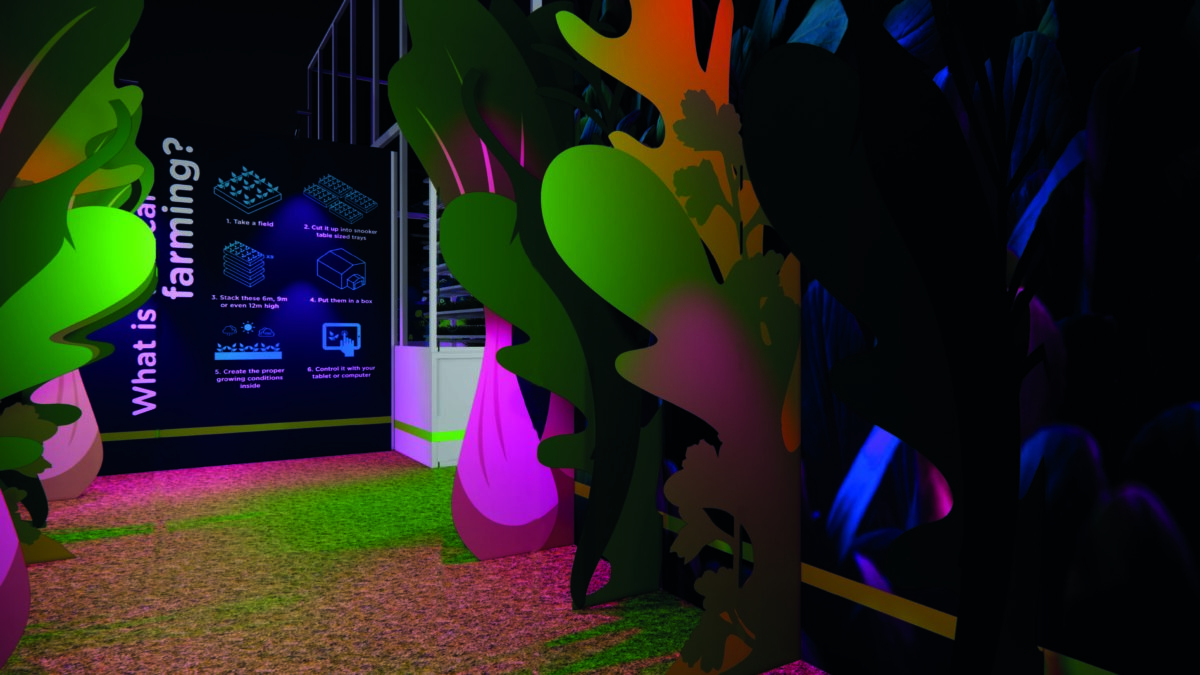The future of agriculture is set to be showcased at Cop26 as Glasgow welcomes its very first vertical farm to showcase how the new technology can save space, reduce pesticides and cut down food miles.
Scottish agri-tech firm Intelligent Growth Solutions (IGS), will display a 5.4 metre-high veg stacking system at the Sustainable Glasgow Landing from 1-12 November, open to schools and the public alike.
Feeding a growing global population in a sustainable way is a fundamental challenge which must be addressed through research, innovation and investment, says IGS.
Vertical farming is one solution that is helping have a positive impact on the horticulture, food production and forestry sectors.
Vertical farming uses stacked indoor layers with artificial light and temperature to optimise plant growth. It helps to reduce food miles and water waste, as well as eliminating the need for pesticides. It also allows produce to be grown locally and on demand, which could reduce fresh food waste by up to 90 per cent.
Councillor Susan Aitken, leader of Glasgow City Council, said: “The concept behind the Sustainable Glasgow Landing was to create a space in which local and global organisations could come together to showcase the work they are doing to combat climate change.
“With the site hosting a vertical farm exhibit and performances taking place throughout Cop, we’re excited to see how delegates and members of the public react to seeing it in person. Cop26 being held in Glasgow is a huge opportunity for the city and Scottish business more broadly, and we’re delighted to see so much talent and innovation on show.”

David Farquhar, chief executive of IGS, added: “As world leaders and decision makers gather at Cop26 in Glasgow in early November, there is clearly a lot on the agenda. However, there are some very notable challenges missing from the programme which must be addressed – most crucially how we plan to feed our exponentially growing populations whilst reducing the dramatic negative impact food production has on our climate.
“Agriculture is now the leading contributor to the climate crisis, but it is equally one of the most vital to sustaining human life. We need to address how we grow our food and think about it differently, to understand what can be done now and in the future to feed our populations sustainably.”
IGS is inviting visitors to learn what’s not working in current food supply chains, how they are contributing to the climate crisis, and gain a positive taste of what is to come.
The Sustainable Glasgow Landing – situated on the north bank of the River Clyde at Broomielaw – has transformed a vacant site for the duration of Cop26 into a vibrant space where climate and social justice movements meet the arts.
There is a packed events programme, and visitors are invited to explore a range of exhibitions, from Passivhaus technologies and sustainable power generation through to active travel solutions and collaborative art pieces.
Find out more about the exhibitors and the full programme of events here: https://www.thesustainableglasgowlanding.com/




